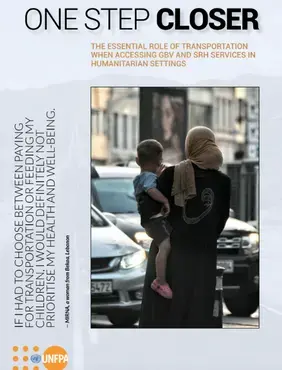UNFPA’s programme data and assessments show that women and girls consistently identify transportation as one of the first barriers when it comes to accessing health facilities and Women and Girls Safe Spaces in humanitarian settings across Iraq, Jordan, Lebanon, Syria, Yemen, Sudan, and Türkiye. It is well documented that women and girls are often exposed to safety and security risks while commuting, including when trying to access humanitarian assistance such as GBV or SRH services, during which time they may be exposed to sexual or other forms of harassment, physical abuse, or other types of GBV. As one adolescent girl from Ar-Raqqa explains, “we feel less safe than before. When we leave our homes, we are afraid of harassment, rape, and kidnapping.”
This advocacy note is intended to provide key messages, best practices, and recommendations to establish, foster or ensure the sustainability of transportation as an integral part of GBV and SRH programming. It offers donors and practitioners a brief guide to analyse possible transportation approaches derived from the direct experience and lessons learned by UNFPA and its partners from operations in humanitarian contexts across the Arab region and UNFPA’s regional response to the Syria crisis.


